Bosch Field Service Engineer working in steam energy for boilers
Andrei Moldoveanu, Romania, Field Services Engineer Bosch Home Comfort Group Industrial Heat
Andrei Moldoveanu is a Field Service Engineer for Bosch Home Comfort Group-Industrial Heat . He is an Industrial Power Engineer, has a master’s degree in Energy Efficiency Engineering and is based in Romania.
After many hours on site with clients installing, maintaining, retrofitting, and commissioning industrial steam and hot water boilers/ burners and other heat plant equipment; and then many hours on the road, he relaxes by tending his garden.
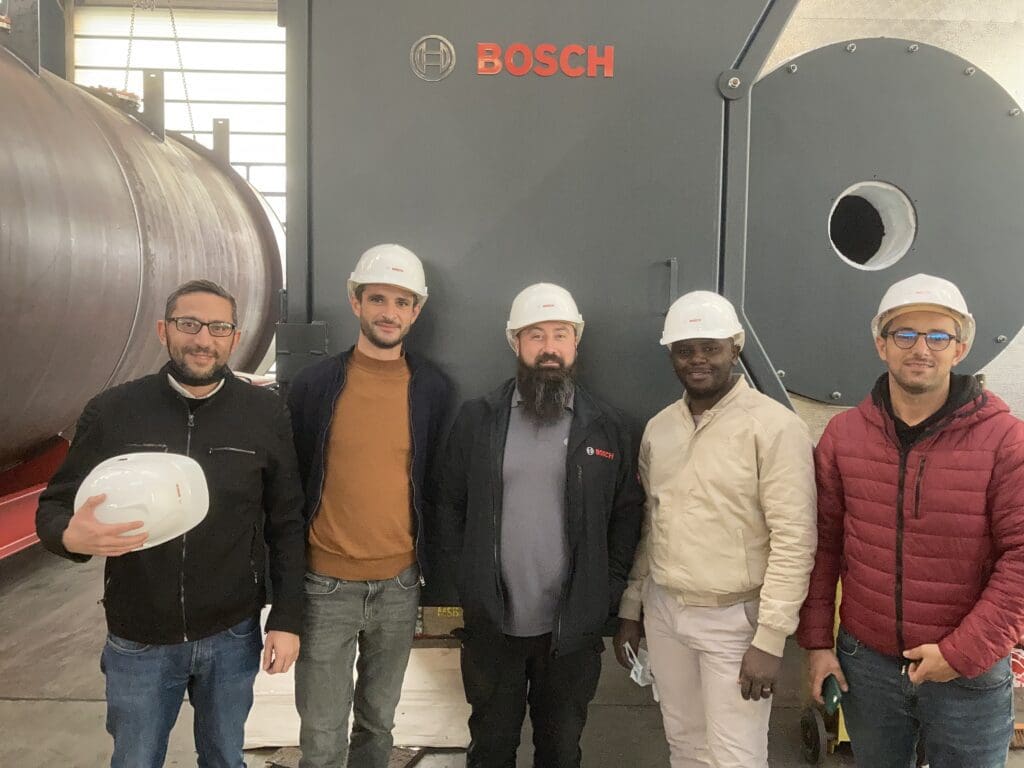

Background
What led you to study engineering?
My brother and father were both electrical specialists, so I was drawn towards engineering to make a complete family team. I started by studying power engineering. Then at college I discovered that I also liked the thermal part of engineering.
You have also worked in food production. What did this involve?
Yes, I was the Assistant plant manager for Agrana so really middle management leading a maintenance team within the plant.
What were your reasons for moving into boilers?
While I was at Agrana, I met a commissioning engineer who had come onsite from Norway. I realised that I really liked the sort of work he was doing, and I wanted to try it.
He encouraged me to try, and it only took me three months to achieve this dream. That’s when I started with Bosch. I had moved away from planning into a hands-on role.
How did your skills and experience transfer into your new role and company?
Mainly management skills and soft skills as well as hard skills like electrical/automation and mechanical engineering.
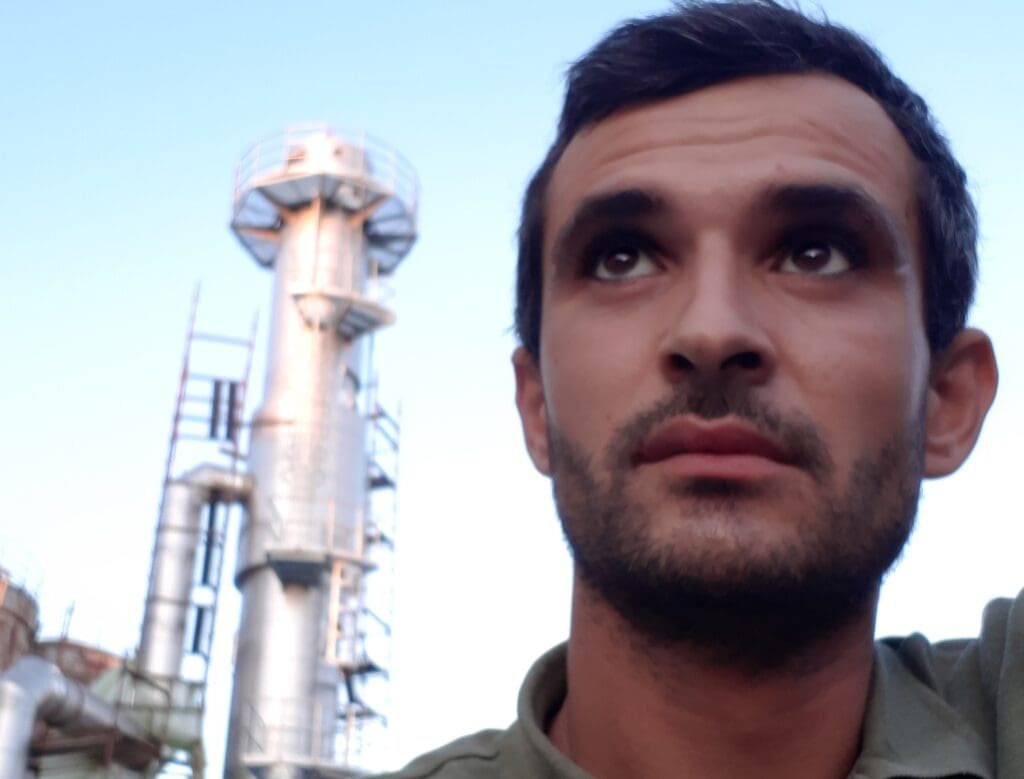

Typical day as a Bosch Field Service Engineer
What’s your typical day like?
This varies a lot.
I can give an example, this week I have been carrying out a monthly inspection. For this, I start with a visual inspection, checking settings looking for leaks etc. Then using my gas analyser on the chimney, I take readings between 0 and 100% to check if the firing is still within parameters. I’m looking for the optimum efficiency firing of the burners.
Another example was a call in the evening from a client who had a breakdown. So, I explained over the phone what to do to keep the boiler working. Then in the morning, I drove to the client’s site. I depressurised the boiler, then drained it till the level was behind the conductivity sensor socket. After that I could dismantle the old sensor and install the new one. Then I ran checks and adjustments to calibrate the sensor output signal, and check that the values were displayed correctly. After that I could restart the boiler, update the client, and get back in my car.
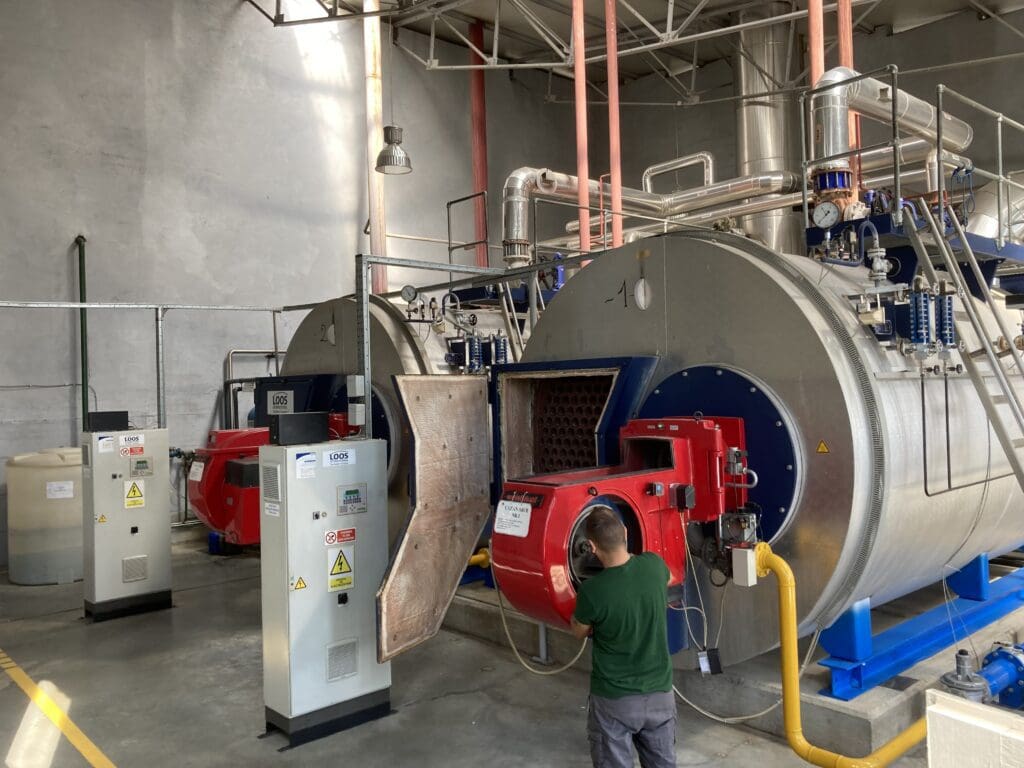

Yearly Maintenance Jobs
For maintenance we need to have the boiler cooled down and drained out. I usually arrive and find that the boiler has just been switched off, not cooled down or drained out. You can’t start the job until it is cool enough. Also, it is an important operation in order to protect the boiler from mechanical stress due to a quick change of temperature.
Travel as a Bosch Field Service Engineer
You are based in Romania. How much travel do you do? What is the geographical area you cover?
A lot of the travel is unplanned and last minute. It’s difficult to understand the stress of this, until you have worked as a field engineer. The first six months are very tough especially if you don’t have good accommodation when you are away from home. I cope better with the travel now as I am more experienced.
When the clients are in Romania, I drive. I only fly when it is to another country.
How are you always prepared?
I keep a full set of all the tools I need in my car.
Job in Moldova
I had a job there last year and I travelled there with a colleague by car as it was faster than flying. It was the shortest commissioning I had ever done, and it was stressful not because of the work but because of the location and how near it was to Ukraine.
Training
I go to Germany about four times a year for about a week at a time for training sessions.
What does the training involve?
The training I go to is technical and focuses on parts which are used within our Bosch Systems.
Burners and firing managers are made directly by burner manufacturers Weishaupt, Dreizler, and Saacke.
Burner managers/Combustion Management Systems are manufactured by Lamtec and Saacke.
In these classes we are trained theoretically but also perform practical exercises.
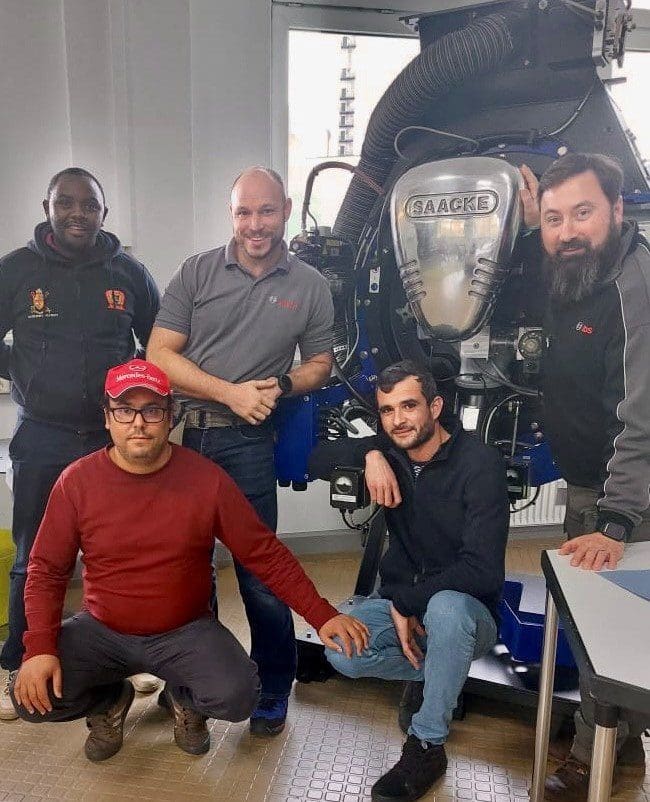

Most challenging part of the job
What is the most challenging part of your job – technical side, people management or customers?
The people are the most challenging part as you are on the customer’s site, and it is their owned product. With the technical side, you can have your own ideas.
Whereas people don’t always act on the advice of a field engineer.
For example, in one case where there were 5 boilers, this was the system:
2 at full capacity,
2 cold (ready to go in 2-3 hours),
1 kept on just to take the spikes in consumption.
I felt that this was not the ideal way to function and that there could be production losses in case of boiler breakdown. I suggested another configuration, but the energy price was still worrying the managers. Plus, maybe they had already calculated production losses versus energy price to keep the other boilers warm.
In general people want to keep doing what they have always done. I often hear:
“We’ve been doing it like this for the last twelve years….”
Sometimes, they will listen to me and seem to agree, but when I go back the next time, they are doing exactly the same thing.
I can’t really argue with them as they are the client.
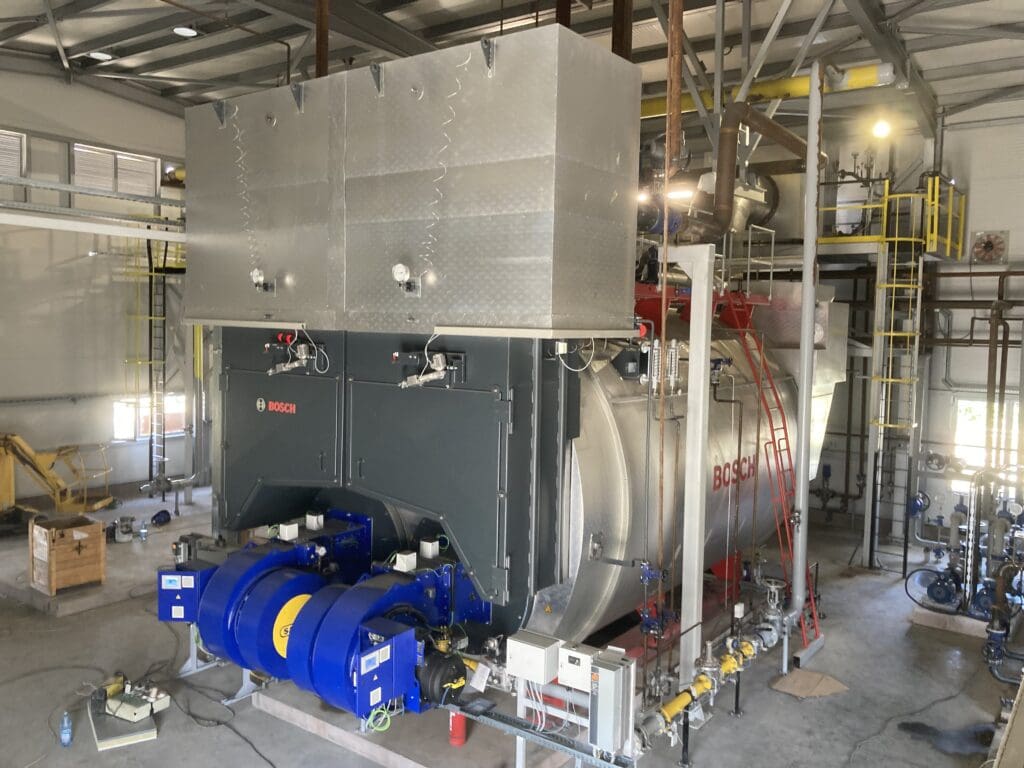

How do you explain technical issues to non-technical people?
Being a part of the industrial business, I rarely find non-technical people. However, it is never so hard to explain because I use practical examples from everyday life.
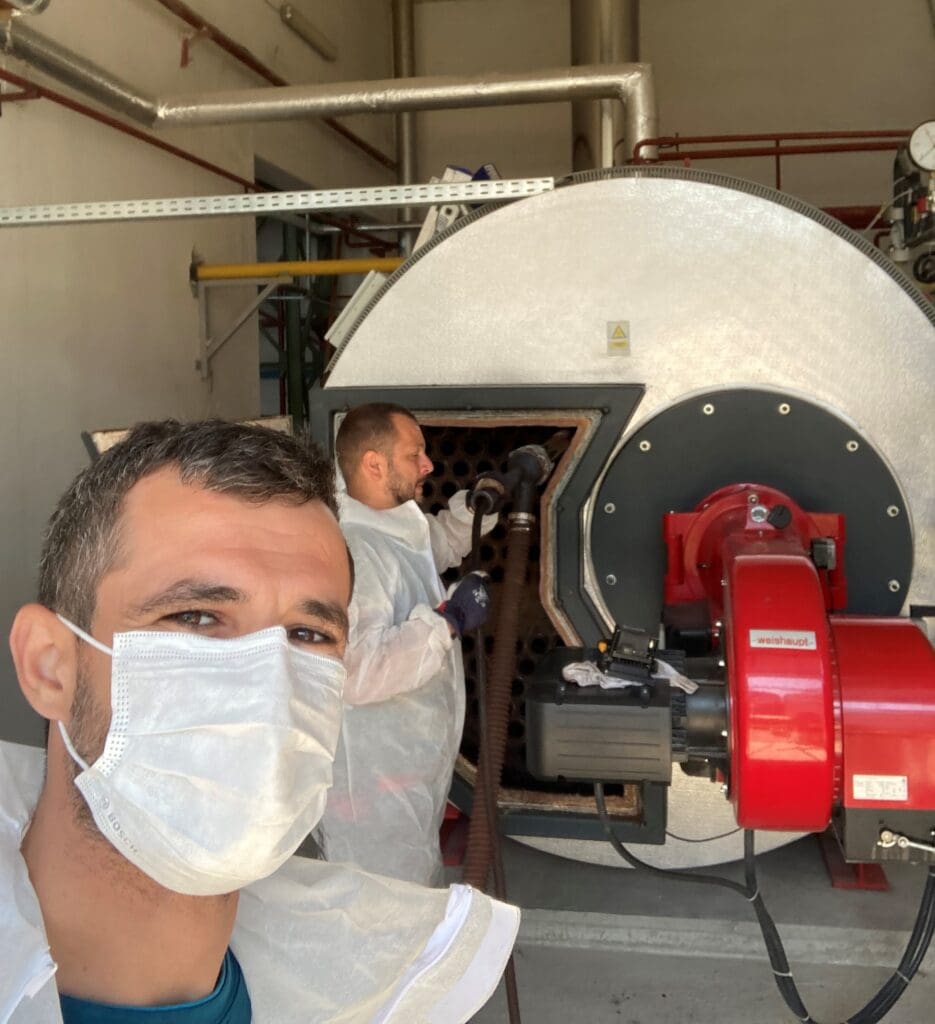

Physical fitness
How physical is your job and how do you stay fit?
You need to be fit and be physically strong and also be the right shape to get into the boiler, as it is a squeeze.
It is very hot when we work and so you need to drink a lot. I have trained my colleagues to drink a lot to protect their health.
Future engineers
Why would you recommend this type of field service engineer role to someone who has studied mechanical engineering?
Ideally someone with:
No kids – I have a daughter and she doesn’t like my job as I am away a lot.
A lot of engineering knowledge – chemistry, automation, electrical, mechanical, and power engineering, because you need to be able to understand what is happening behind the scenes (firing and steam production).
What sort of personality traits are ideal for a service engineer?
You need to be tough at times, positive, good at listening, and patient. In addition, you need to be able to balance keeping your company happy and your client happy, but the safe working of the equipment is the most important aspect of everyday. You are the person who is actually speaking to the client, so a “middle person”.
I think coming from middle management helped me with this as I already had the necessary soft skills.
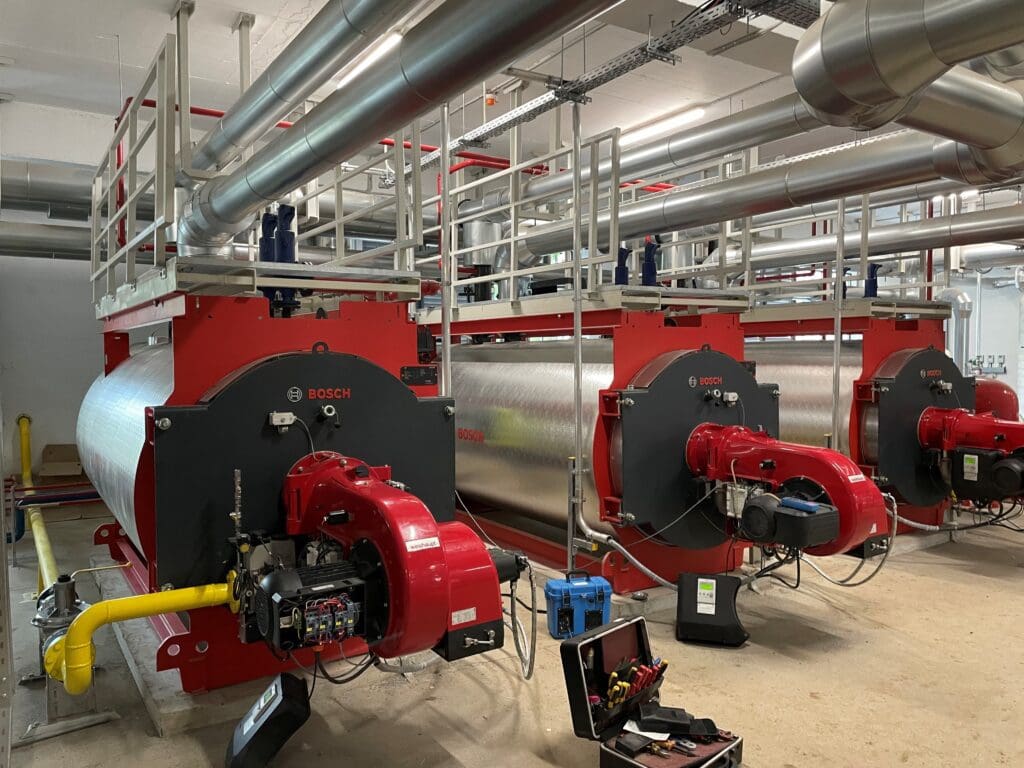

Future of steam energy
How do you think things will change in the future?
I am not optimistic about the future regarding steam produced with gas. Now people want steam produced with H2 or electricity, but this isn’t possible immediately as we need clear thinking and investments.
It’s clear that in Europe gas and other fossil fuels will decline in use.
However, steam will never die. You need steam for all sorts of industrial processes, sterilising food, etc.
So, steam won’t die, just the way of producing it will change.
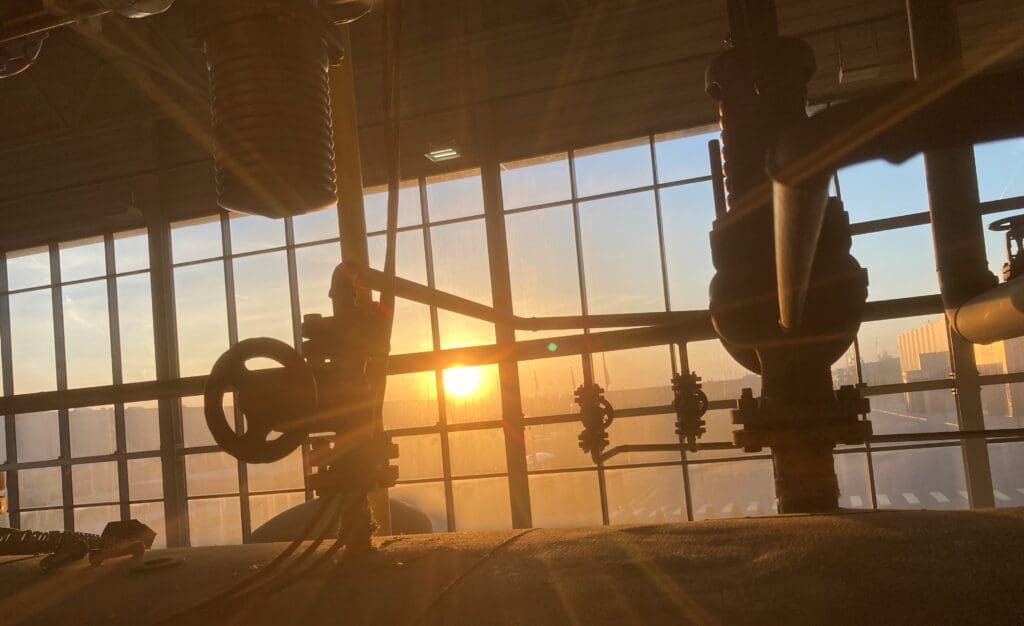

Further reading about energy and field service engineers
Mohammed Efratsin Chowdhury a Chinese speaking Bangladeshi leading a Turbine Group at China Energy Engineering Group
A Gas Power Generation Sales Engineer – meet Kelechi Amadi Ahunanya


Responses